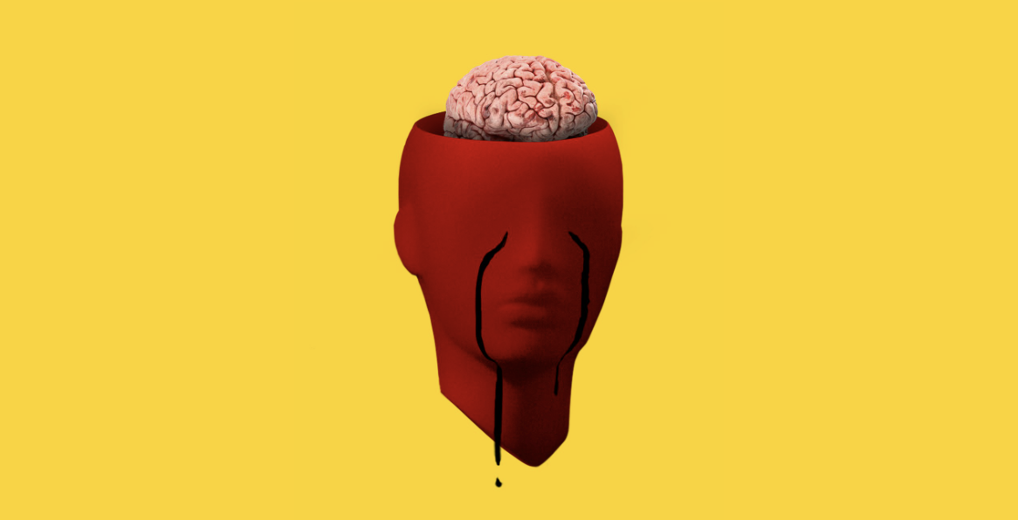
Seeking the Good
The Leadership & Happiness Laboratory is excited to announce Seeking the Good, a series of monthly inquiries into community, culture, & society.
‘The Form of the Good,’ a Platonic ideal, is the origin of knowledge. Plato argues that only from ‘the Good’—a perfect, eternal, and changeless idea—can justice and truth derive value. As imperfect people, it is a concept that will always be just beyond our grasp, but also one that must be sought after if we hope for a better world. In this new journal, the Leadership & Happiness Laboratory intends to inquire about problems and propose solutions with this ideal top of mind.
The first collection of essays will comment on remedies to America’s political malaise, how leadership is entwined with pain (and meaning), how to buoy up workplace culture, when conflict is beneficial, and more. It is our hope that Seeking the Good will provide the basis for leaders of families, businesses, and political parties to unite in a shared vision of goodness. Only in seeking can we move forward together.
-

The Friendship Recession: The Lost Art of Connecting
It is no secret that the West is witnessing a decline in social connection. Many blame structural forces, but a deeper cultural problem is likely afoot—that is, we’ve lost the art of forming and sustaining friendships. How can we turn the bearish “friendship recession” into a bullish “friendship boom”?
Carolyn Bruckmann, Harvard Kennedy School MPP ‘25
-

Progress and Prospection: Finding Happiness Today by Falling in Love with Your Future
Humanity’s superpower is prospection—but if left unchecked, it can turn detrimental. Emerging research suggests that, when contemplating our goals in life, we should be keenly aware of our ‘feared selves’, ‘ought selves’, and ‘ideal selves’. Only then can we adventure toward the future.
Ryan Meachen, Associate Research Fellow, Leadership & Happiness Laboratory
-

What is the use in seeking good?
On the one-year anniversary of Seeking the Good’s launch, we reflect on who we are, how we write, and why ideas such as these matter.
Bryce Fuemmeler, Senior Research Associate, Leadership & Happiness Laboratory and Managing Editor, Seeking the Good
-

Reclaiming the Lost Lessons of Childhood to be Better Leaders
The literature on child play is robust, but its prescriptions—that movement, boredom, and fearlessness are a boon for well-being—rarely overlap with the managerial science. That's a shame, and a missed opportunity: The workplace would do well to learn from what Aristotle called "the energy of youth."
Dilan Gomih, Founder of Dilagence, Harvard Business School '19
-

Medicine: What's spirituality got to do with it?
Medicine and spirituality are seemingly at odds, but perhaps they shouldn't be. Drawing from her surgical background and Hindu tradition, Dr. Tarinee Kucchal, MBBS, argues why medicine could benefit from taking an intellectual adventure into the metaphysical.
Dr. Tarinee Kucchal, MBBS, Research Fellow for the Leadership & Happiness Laboratory
-

Beyond policy: Reimagining family in the American psyche
Across the West, fertility rates are in decline—and that, argues the psychologist Clay Routledge, is because the aspiration to become a parent is in decline. Yet parenthood is consistently ranked as the most meaningful and fulfilling aspect of one’s adult life.
How can we understand this paradox? And how can we revivify family formation to boost meaning across American culture?
Dr. Clay Routledge, VP of Research and Director of the Human Flourishing Lab, Archbridge Institute
-

Organizational Harmony: A fresh framework to navigate tensions
Organizations inevitably encounter competing tensions that provoke stress, anxiety, and discomfort, which in turn hurt firm performance. Yet in integrating the concept of harmony—by bolstering an organization’s shared purpose, willingness to collaborate, and psychological safety—leaders can take practical steps to revivify their organizational culture.
Dr. Marc Correa, Visiting Scholar at the Leadership & Happiness Laboratory and Professor at ESADE Business School
-

Why Disagreement is Good for Us
Today’s university is gripped by polarization. Yet this should not obscure the fact that disagreement, when done properly, bolsters our own views and moves us closer to truth. A first step toward this end is to re-engage with philosophy, which has power to ignite a virtuous culture on campus, not in spite of—but because of—our disagreements.
Dr. Xavier Symons, Director of the Plunkett Centre for Ethics, The Australian Catholic University
-

The Path to Healthier Thought Patterns
Negative thought patterns, spurred by excessive rumination, are corrosive to our well-being. In an adaptation of her recent lecture at the Harvard Business School, renowned psychologist Dr. Laurie Santos shows us the best practices to rewire this troubling tendency.
Dr. Laurie Santos, Professor of Psychology, Yale University
-

Leadership and pain: Why unhappiness is essential for self-actualization
Leadership isn’t easy, and, indeed, can be painful. But when pain inevitably arrives, we oughtn’t run from it. Instead, social science points to reliable ways to improve one’s well-being amid hard times.
Alexis Sargent, Laboratory Research Assistant, Harvard Kennedy School Master in Public Policy student (‘24)
-

Balance and Harmony: The Hidden Heart of Happiness
For centuries the West has been animated by a spirit of maximalism. Yet a different, more Eastern approach — optimalism — would usher in both “balance” and “harmony” into our well-being lexicon. These principles, if studied seriously, have a real possibility to heal a world beset by crises.
Dr. Timothy Lomas, Psychology Research Scientist, Harvard’s Human Flourishing Program
-

The (expanded) history of American happiness
In America, the pursuit of happiness has evolved (at best) into a misguided sense of what happiness is, or has maladapted (at worst) into a pursuit that inadvertently makes us miserable. Guided by American history, we explore the arrival of this cultural moment, and then propose how to build a more meaningful ethos of national happiness.
Bryce Fuemmeler, Research Associate, Leadership & Happiness Laboratory
-

Great leaders are happiness teachers
By drawing from lessons in history and modern social science, one thing is clear about leadership: The best leaders don’t command, they teach. Here’s how to become a better teacher — and by proxy, a better leader.
Reece Brown, Assistant Director, Leadership & Happiness Laboratory
-

Public leaders should build a culture based on compassion, not confrontation
In our world, it seems that confrontation has won the day. To rebuild a better culture, politicians can win support by instead acting with compassion.
Bryce Fuemmeler, Research Associate, Leadership & Happiness Laboratory
